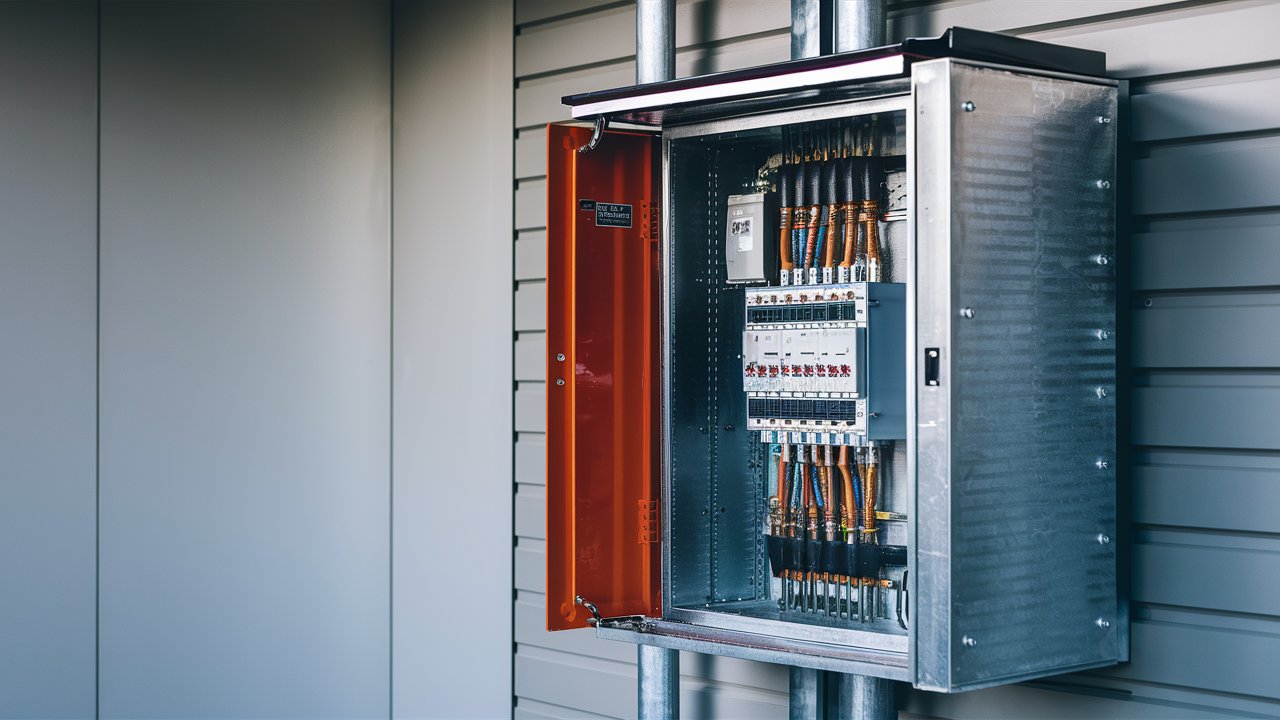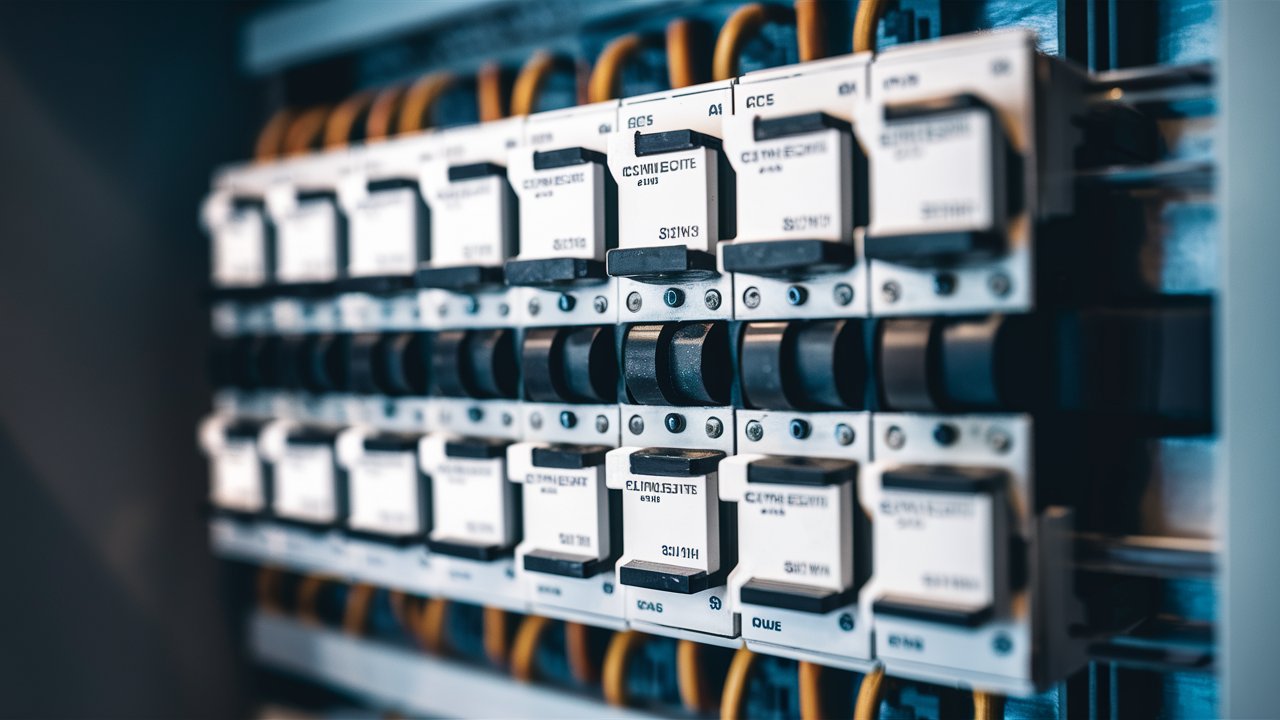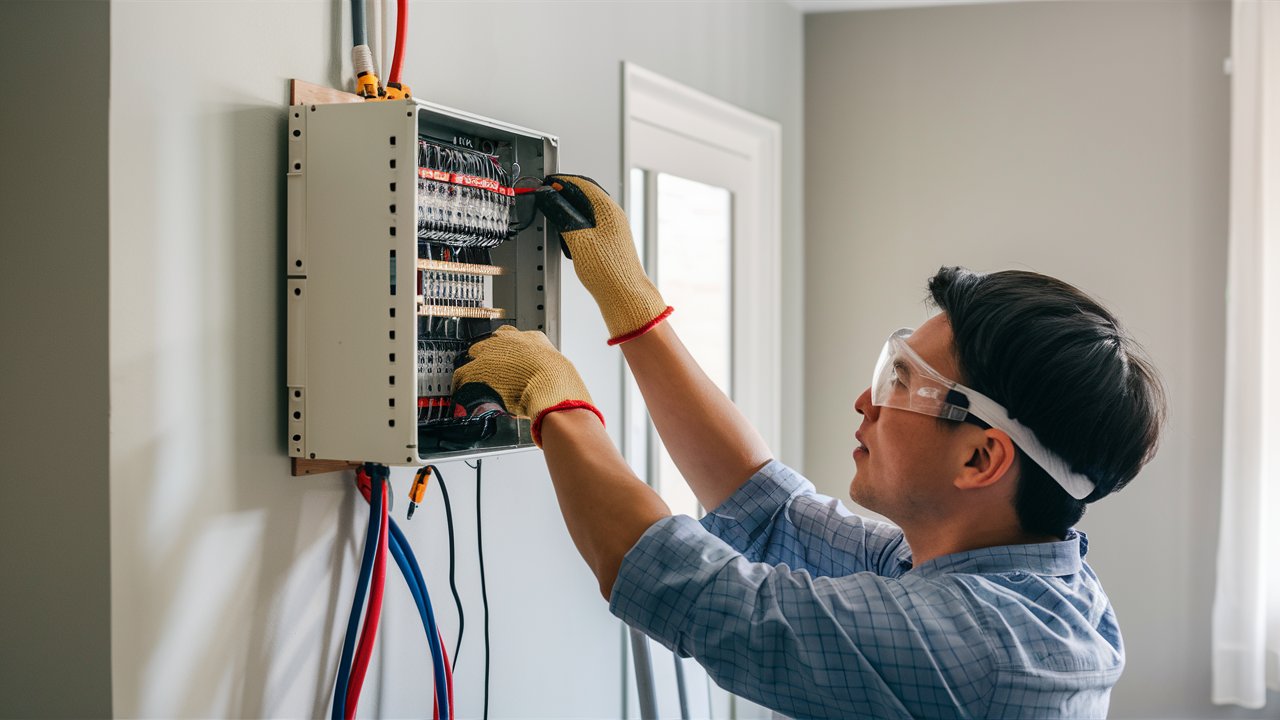Unveiling the Heart of Your Home: Understanding Fuse Boxes and Consumer Units

Have you ever wondered what happens inside that mysterious box that powers your home? The consumer unit, commonly known as a fuse box, is the unsung hero of your household, quietly distributing and controlling the electricity that keeps everything running smoothly.
Whether you're dealing with a power outage or simply curious about how electricity flows through your home, understanding your consumer unit is essential. In this guide, we demystify the components and functions of a consumer unit, making it easy for you to navigate and manage this critical aspect of your home's electrical system.
Let's unlock the secrets of your fuse box and ensure your home stays safe and powered up!
Understanding Consumer Units: The Heart of Your Home’s Electrical System

The technical term for a fuse box is a consumer unit. This essential component is where the electricity in your home is controlled and distributed. Your consumer unit must be easily accessible so you can quickly turn off the electricity in an emergency. While assembling a fuse box and selecting the right components may seem complex to beginners, understanding its basic elements can make a significant difference in ensuring your home's electrical safety.
Key Components of a Consumer Unit
A consumer unit consists of several essential components, each vital to the safe distribution of electricity in your home.
-
Consumer Unit Enclosure
The consumer unit enclosure is the box that houses all the critical components of your electrical system. It provides protection and ensures safety by containing fire-resistant materials like galvanised steel and glass-reinforced polyester. The enclosure is the main control point for electricity in every household, offering a safeguard against potential electrical hazards (Electrical Safety First).
-
Busbar
Busbars are crucial for transporting large amounts of current within the consumer unit. Typically made of copper or aluminium, busbars distribute alternating current power to the rows of circuit breakers in your electrical panel, ensuring a stable and efficient power supply (Electrical Engineering Portal).

-
Main Switch
The main switch in a consumer unit allows you to turn the electricity supply to your home on or off. In homes with electric storage heaters, there may be more than one main switch, often requiring a separate consumer unit. An example is the 100A 2 Pole Mains Isolator Main Switch from Garo, a trusted supplier known for quality and reliability (IET).
-
Residual Current Devices (RCD)
RCDs are life-saving devices designed to trip a circuit under dangerous conditions, instantly disconnecting the electricity to prevent fatal electric shocks. RCDs are essential for safety in both residential and commercial settings, providing a critical layer of protection against electrical hazards (Health and Safety Executive).
-
Circuit Breakers
Circuit breakers are automatic protection devices installed in the consumer unit to switch off a circuit if a fault is detected. They offer more precise protection than fuses and can be easily reset after tripping. In some setups, rewireable fuses may be used instead of circuit breakers. These fuses contain a wire that melts when a fault occurs, breaking the circuit and ensuring safety (Electrical Safety First).
Installing a Consumer Unit - DIY Guide

While consumer units may appear complex, installing one is quite manageable with basic electrical knowledge. At Meteor Electrical, we provide all the essential components to help you set up a consumer unit on your own. With our high-quality parts and this helpful video, you'll be able to install your consumer unit confidently and efficiently. Ready to take on the challenge? Here’s how you can successfully install a consumer unit yourself!
Credit: How2D2
Key Takeaway
Understanding and maintaining your consumer unit is crucial for ensuring the safety and efficiency of your home's electrical system. From recognising the key components to confidently installing a consumer unit yourself, having this knowledge empowers you to handle your home's electrical needs with confidence. Remember, a well-maintained consumer unit not only keeps your household running smoothly but also safeguards against potential electrical hazards.
For all your electrical needs, including high-quality consumer units and accessories, visit our store at Meteor Electrical. We offer a wide range of products to help you manage and enhance your home’s electrical system. Don't forget to check out our blog for more detailed guides and tips on various electrical topics. Stay informed, stay safe, and keep your home powered with Meteor Electrical!
FAQ: Consumer Units and Fuse Boxes
1. What is a consumer unit?
A consumer unit, also known as a fuse box, is the main hub where electricity is controlled and distributed throughout your home. It contains essential components like the main switch, circuit breakers, and residual current devices (RCDs) that ensure the safe operation of your electrical system.
2. How do I know if my consumer unit needs replacing?
Signs that your consumer unit may need replacing include frequent tripping of circuit breakers, visible damage, outdated fuse wire systems, or if it doesn't have RCD protection. It's recommended to consult a qualified electrician if you're unsure about the condition of your consumer unit.
3. Can I install a consumer unit myself?
Yes, if you have basic electrical knowledge, you can install a consumer unit yourself. However, it's crucial to follow safety guidelines and local regulations. Meteor Electrical offers all the necessary components and a detailed DIY guide to help you with the installation.
4. What are RCDs, and why are they important?
Residual Current Devices (RCDs) are safety switches that automatically cut off electricity when they detect an imbalance in the electrical current, preventing electric shocks and reducing the risk of electrical fires. They are an essential part of any consumer unit.
5. How often should a consumer unit be inspected?
It's recommended to have your consumer unit inspected by a qualified electrician at least every 10 years for a domestic property, or more frequently if the property is rented or has an older electrical system.
For more information and to explore our range of electrical products, visit Meteor Electrical. Check out our blog for more guides and tips on maintaining and enhancing your home’s electrical system.

